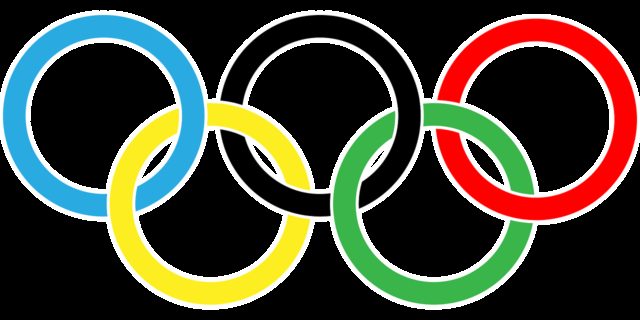The title of this post is the Olympic motto, and it means “faster, higher, stronger” in Latin. If you reflect on these words and their meanings, I’m sure it won’t be too difficult for you to relate them to the athletes who will compete over these next few weeks. Swimmers and runners will be looking to go faster, gymnasts and pole vaulters will be looking to jump higher, and weightlifters and wrestlers will be looking to prove they are stronger, to name just a few of the many sports that reflect these virtues and athletes who will strive to embody them. What might be more challenging is to think about how you can make the Olympic motto a part of your own life, not only if you are an athlete, but also as a student, and as a human being, too. Your application of the Olympic motto may not be quite as literal as it is for the Olympians, especially if you do not participate in any organized sports, but wherever and however you choose to apply it, it can make a difference, not only on your study skills journey, but in your life as well.
Citius, meaning faster, is something that those of you who’ve read my posts for a while might think is the last thing I will advise you to be, since I am always encouraging you to take your time when completing assignments or tests. While the goal for Olympic athletes is to strive to move faster, so that their final times can reflect their goals and perhaps lead to new personal bests and/or medals, they also strive to be more efficient, and that is what I will also advise you to strive to be. Even the best athletes don’t aim for their best times at every competition, and the ones who excel at longer distances emphasize endurance over speed. What sprinters and marathoners, whether on land or in the water, have in common is that whatever their preferred distance, natural athletic ability, work ethic, or support system, they all strive to become more efficient at what they do best, so that when the bright lights are on them, they are able to shine. In order to achieve what they do, Olympic-level athletes dedicate a lot of time to perfecting their craft, and are coached to use that time as wisely as they possibly can. Many of them are also strong students, and they learn to balance their schoolwork and training, just as I have encouraged you to learn to balance your studies with your activities, athletic or otherwise. Depending on your specific learning challenges, there may be things that you will never truly learn to do more quickly, but if you learn ways to do them more efficiently and strive to use your time more wisely, you might just realize over time that you are able to be faster after all.
Altius, meaning higher, is another thing that you might think I wouldn’t advise you to aim to be, since the most obvious use of the word higher when it comes to academics is grades. However, there is a difference between higher and highest, and setting goals to achieve higher grades, especially in subjects where you have allowed your effort to slip and/or have not sought the help you needed or accepted the help that was offered, is a far cry from setting goals to achieve all “A”s because nothing else is good enough. It may surprise you to know that while all Olympic-level athletes aim higher than athletes they may have faced in their younger years, they don’t all aim highest. In other words, many, if not most, athletes who make it to the Olympics have no expectation to medal, or even to place high. For some, the goal, the highest point, is simply to get there, to set a goal and see it realized, to push themselves beyond what they would have ever dreamed they could be. Instead of not being satisfied unless they are able to be the best of everyone at the Olympics, they are satisfied as long as they feel that they have truly done the best that they could do, and have made the most of the opportunity they had earned to compete on the world stage. If you look at making improvements to your grades the way these athletes look at making it to the Olympics, instead of seeing a medal-worthy performance as the only acceptable goal, then knowing you did the very best that you could do should be just the incentive you need to keep aiming higher in the future.
Fortius, meaning stronger, may appear at first glance to be the most challenging of all the Olympic virtues to apply to study skills, but the way I see it, it is actually the easiest, as long as you remember that just as Olympic athletes need both physical and mental strength to succeed at what they do, so you need both the natural abilities and strengths you already have and the academic and study skills you develop over time to become a stronger student. No matter how naturally strong and gifted many Olympic athletes are, they almost invariably acknowledge in their interviews that it took a lot more than their physical gifts and strengths to make it to where they are. In addition to acknowledging the work they had to put in, they also thank everyone who helped them along the way, from family and friends to coaches and teammates, to mentors and support staffers. They also, more and more of late, acknowledge that that the help they receive with their mental game is just as important, if not more important, than the help they receive with their physical one. Their acknowledgement of their need for mental strength as well as physical strength compares favorably to my belief that you need both academics and study skills, and that striving to improve both will help you become a stronger student.
While “citius, altius, fortius,” or “faster, higher, stronger,” is best known as the motto of the Olympics, it can also serve as a good motto in both school and life. When it comes to study skills, using time more wisely and efficiently, aiming higher by setting goals and working to the best of your ability to achieve them, and developing the mental strength you need to succeed regardless of any challenges and obstacles you may face, are all ways you can live the Olympic motto, and truly strive, just as the Olympians do, to achieve more than you ever thought you could.

